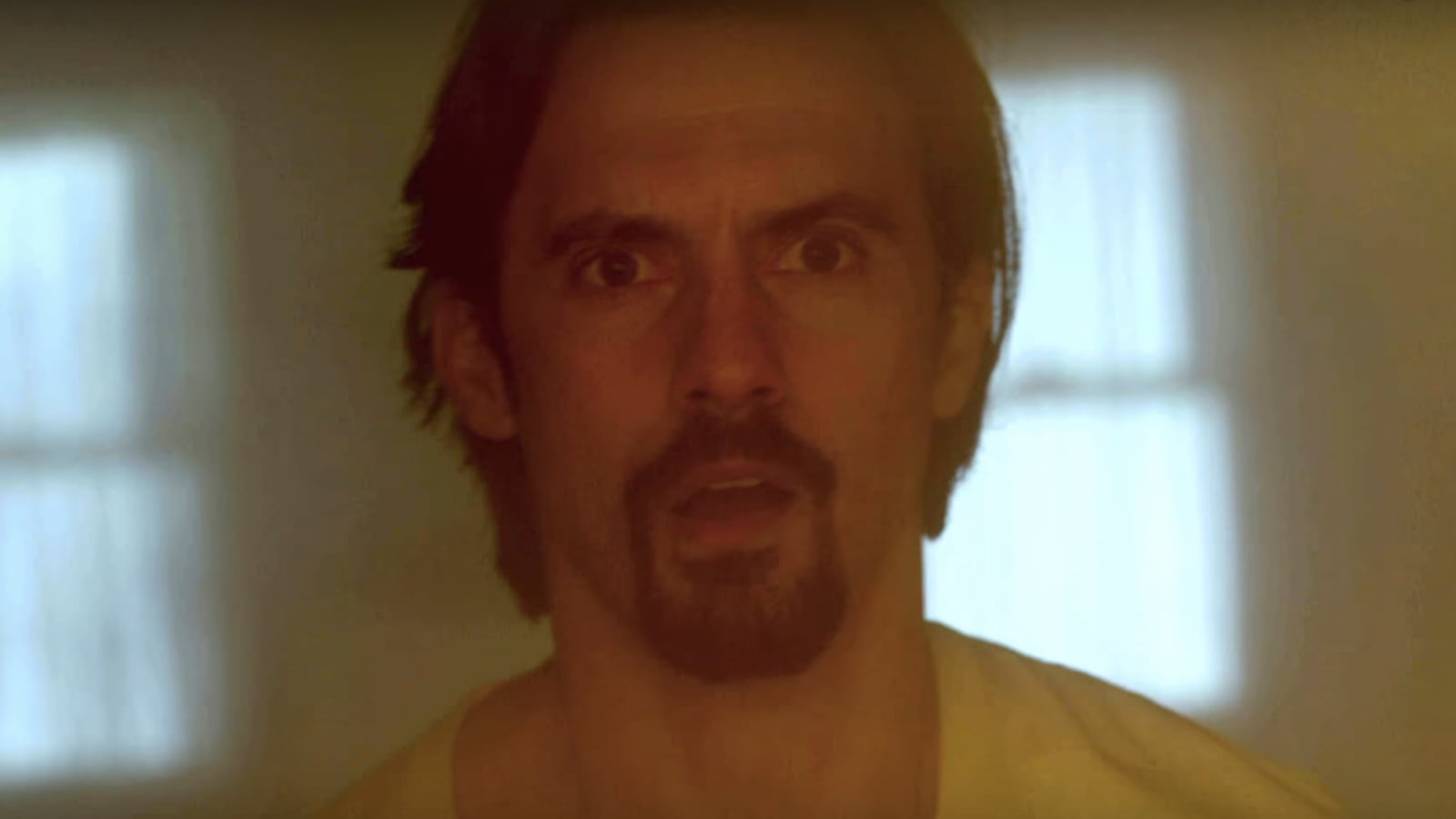He finally died.
Thank God, he died!
We’ve been waiting for him to die. It was so satisfying. I wanted it to happen for so long and it finally happened. It was so satisfying. The death. That we’ve been begging for. It was so good. When he died.
We live in uncertain times as a divided, polarized society. But with this America finally agrees: Hell yeah, that death!
The This Is Us death buildup might have been one of the most macabre exercises in drumming up buzz for a TV show we’ve ever seen. What started as an interesting narrative twist—the impossibly perfect dad played by Milo Ventimiglia in the premiere of This Is Us is, in the present-day-set sequences of the time-hopping drama, long-since deceased—became an exasperating trolling device, with countless fake outs and red herrings about how he died and when we would see it.
So in many respects, the MVP of the This Is Us cast is actually an uncredited player: The Grim Reaper. He has had a starring role in the majority of the blockbuster series’ celebrated run, and Sunday night he finally soaked in his standing ovation.
This isn’t even a spoiler, as NBC did everything but show us a charred corpse in its lead-up to Sunday’s episode, the crowning achievement in the modern reign of TV cynicism: death not as catharsis, but as pornography.
In its promotion, NBC kept talking about the episode being “historic,” which I don’t necessarily understand. Characters have died on TV before, if my memory serves me correctly. I mean, I feel like it’s happened. I swear I’ve seen fires on TV, too. Probably on that show Chicago Fire, I bet. So…historic? I don’t get it, unless NBC’s marketing team is self-referencing the most macabre ad campaign in TV history. Gold medal goes to This Is Us for that, for sure.
On Sunday night the bloodlust was palpable, too, owed to the incessant teasing of the big episode.
There was practically an uprising the longer in the night the Super Bowl post-game ceremony went, forcing poor viewers to watch one grown man after another kiss a trophy when all they wanted to see was Jack Pearson burned alive. I hope they all get the flu. Was it going to be like an asphyxiation scenario? Or a straight-up roasting? The anticipation was killing us. Just kidding. Only one man was dying tonight and that man was Milo Ventimiglia with questionable facial hair.
It’s the 20th anniversary of Jack’s Super Bowl Sunday death-by-Crock-Pot—at least that’s what we’re meant to assume—and the surviving Pearsons are dealing with their emotions in their own heartbreaking ways. (There is something deeply relatable to me about the Super Bowl being someone’s most dreaded day of the year.)
Kate spends the day watching the video of Jack filming her sing as a teenager, which is one of the more beautiful and poignant portraits of fatherly love the show has produced. Kevin is living with Rebecca and Miguel. He usually gets drunk and bangs a supermodel on the death anniversary. Rebecca usually makes his favorite lasagna and eats it alone, looking for a sign that Jack sends her from the beyond that reliably makes her belly laugh each year. Randall throws a big party as Beth fabulously snides, “It’s a whole thing.”
But the money shot, of course, is the big flashback to the fire that killed him. Well, sort of!
We see the fire play out, and Jack’s Superman heroics to get his family out safely. The extent to which this show turns Jack into a superhero, while initially endearing, has become entirely cartoonish and maybe even detrimental to it. While he makes it out of the burning house alive, the reason he eventually dies—from a heart attack due to smoke inhalation—is because he went back in to save the dog and some family heirlooms. When a character is lionized to this degree, he almost becomes off-putting!
But that’s beside the point—the point being the sweet, sweet joy of watching this man die. (We love this show so much—more than many critics—but the Jack Death Watch might be one of the more craven things we’ve watched a pop culture fanbase do, aided and abetted by NBC fanning the flames. No pun intended.)
All snark aside, the fire scene was extremely intense. There is something consistently transfixing about the show, which is as skilled at staging a dramatic action sequence as it is its gonzo cryfest moments and its mundane everyday moments of levity.
For all the fetishizing of Jack’s death from the outside, the show was actually remarkably restrained in its depiction of it. The fire scene didn’t overstay its welcome. Lesser shows would have drawn it across the entire episode to make a shaky point about being able to stage such a scene. And the way the actual death was portrayed, off-camera while frenzied nurses and doctors ran around an oblivious Rebecca, was gut-wrenching.
It’s an unusual emotional trick for a TV show to attempt to pull off: getting its audience to feel devastated over the death of a character they’ve long known was dead, and who they know they will still see—and in the same fashion—next week and all the episodes after that. We have to admit that the wrenching devastation we expected to feel given the way NBC has been hyping the moment like it was some kind of emotional atomic bomb never really materialized. We’re still alive. Still standing. We survived it!
But what made the episode succeed is the subtlety and humanity in the cast’s performances. There were no histrionics in an episode that practically begged for them. The confusion and heartbreak and anger flickered in utterly believable fashion, especially in a stunning close-up scene in which Mandy Moore’s Rebecca sees her husband’s dead body.
Mandy Moore gave the performance of her career in this episode, coming in a season in which she has proven herself the unexpected standout of the cast. And it’s a stacked cast, each delivering respectively outstanding performances this week, too.
What we found most interesting about the whole affair, however, is that the death scene may even have been the least impactful part of the episode. We were far more moved by the flash-forward reveal that Tess becomes a social worker than by the death scene. We were similarly knocked out by Kate’s tearful monologue to Toby thanking him for loving her.
This Is Us’ popularity is typically attributed to its relatability—how we can all identify with some elements of its characters journeys, the way their everyday lives surface big emotions. Grief is a unique emotion in that it’s the most universal but also the most individual. Seeing how each of the characters has dealt with their grief, broadly across decades and in the immediate moments of the episode, is extremely powerful.
The episode sensitively addressed how people get through the shock trauma of someone suddenly being taken from you, how we move on, how we regret, how we resent, how we linger in sadness and also push through.
It was a strong episode of This Is Us, one that was only hurt by the major focus on the death scene that we’d finally get to see. Maybe freed from the anticipation of that, the noxious exploitativeness that has blanketed the show this season because of it will go away and the show will reclaim some of its purity that made it such a refreshing joy last season.
In the end, the only real purpose that massive Crock Pot fire scene really served was to reaffirm my lifelong, passionate pledge to #NeverCook. It’s a safety issue, people.






